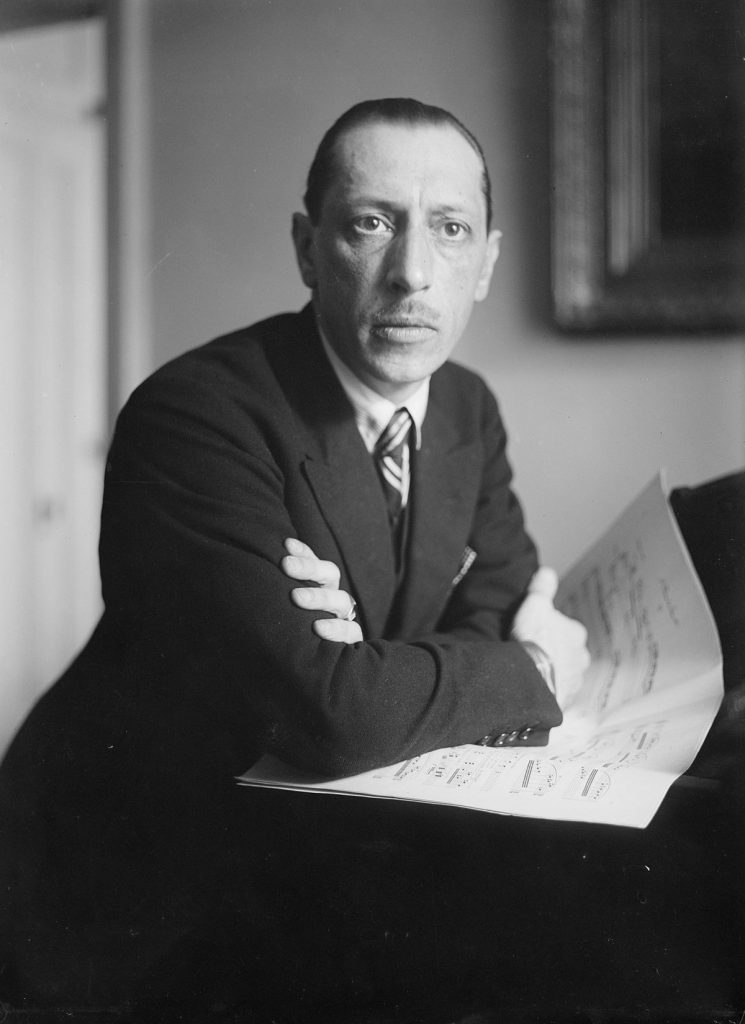AXIOM impresses in multi-hued music of the 20th century

Juilliard’s new music ensemble AXIOM, under the superb leadership of conductor Jeffrey Milarsky, took the stage at Alice Tully Hall Friday night with a colorful program of 20th century modernist music. Led by the towering Igor Stravinsky, the concert featured the too-infrequent chance to hear the work of Toru Takemitsu and Harrison Birtwistle.
AXIOM played four pieces by Stravinsky that are themselves rarely, performed: the solo Three Pieces for Clarinet, Elégie for Solo Viola, and the chamber vocal works Three Japanese Lyrics and Pribaoutki. These are all miniatures, small in scope and short in duration. Hearing Stravinsky in this form was a reminder of two things; the first was how synonymous the composer’s name is with modernism, the second how he excelled in everything he produced—there is no bad Stravinsky, just masterpieces and things that are merely good to excellent.
The way he remade musical language still sounds remarkable and the solo clarinet and viola music put this on display. In each, the thematic ideas develop by folding back on themselves, like cubism in music. And as heard in the skillful performances from clarinetist Hanlin Chen and violist Lisa Sung, Stravinsky’s music was never just experiments in structure and form; Friday one heard the haunting lyricism, the astringent look at the internal and external worlds, that ran through his career.
Chen and Sung brought this out through the lovely sound each produced. Starting with the clarinet in A for the first of the Three Pieces (the last is for B-flat clarinet), Chen played with a soft and warm sound, gauzy but with a firm core. The viola solo has the instrument muted, which produces a near early-music timbre—Sung captured this quality with no loss in body, and carried an the music with an expressive legato.
Soprano Libby Sokolowski and baritone Kyle Miller joined the ensemble for the Japanese Lyrics and Pribaoutki, respectively. The first sets three traditional Japanese poems, the second four sets of Russian nonsense lyrics. On the instrumental side, each shows the composer’s trademark rhythmic modulation and displacement. The Japanese Lyrics float free of this, though, graceful and personal in a romantic and even expressionist way. Sokolowski’s fine phrasing glided through and over the ensemble in what was a lovely performance. Miller sang with a rounded sound and impressive Russian articulation, and understood Stravinsky’s straight-faced humor.
Takemitsu’s approach followed that of Debussy in eschewing standard development for the statement, elaboration, and juxtaposition of discrete ideas, aphorisms writ large and beautiful. AXIOM played Archipelago S to close the first half, in which the composer divided the ensemble into several metaphorical islands. At Alice Tully, that meant three small groups on stage—one at each flank and the brass grouped at the back—and a clarinet player in each of the foreword-most boxes.
Archipelago S is one of the most alluring of Takemitsu’s scores. The music floated across the audience from group to group, like weather fronts, or postcards from far-away lands. The spatialization added an extra, physical dimension to the composer’s gently fragmented style, collapsing the distance between him and the listener.
The young musicians were alert to each other and produced a beautiful sound and fine performance., not just playing the score but responding to each other. This was an excellent realization of Takemitsu’s art, especially the solo playing from Lee Cyphers on the French horn and trumpeter Clinton McLendon.
That performance was one measure of the ensemble’s quality, the other was the very different Silbury Air, the last work on the program. Where Takemitsu dreamed of islands, Birtwistle dreamed of England’s ancient, pagan mysteries. Named after a prehistoric archeological site, the music is knotty, twisting, at times sharp-edged, at others blunt. Despite the high modernism of the sound, there is a strong tally of narrative, not pastoral, much more like the musical counterpart to Quartermass and the Pit.
Takemitsu’s sensuousness opens his music to the listener, Birtwistle’s ideas can be more hermetic, demanding some insight into the composer’s personality. Even without that, the performance had a vibrant feel, not the least in the intense and complicated rhythms. The musicians played these with articulate confidence, and their performance expressed a deep fascination with the music.
The New Juilliard Ensemble and conductor Joel Sachs play a program of new and recent music, 7:30 p.m., November 12, in Bruno Walter Studio 309. AXIOM plays Elliott Carter, George Lewis, Morton Feldman, and Philip Glass, 7:30 p.m., November 23, in Alice Tully Hall. juilliard.edu